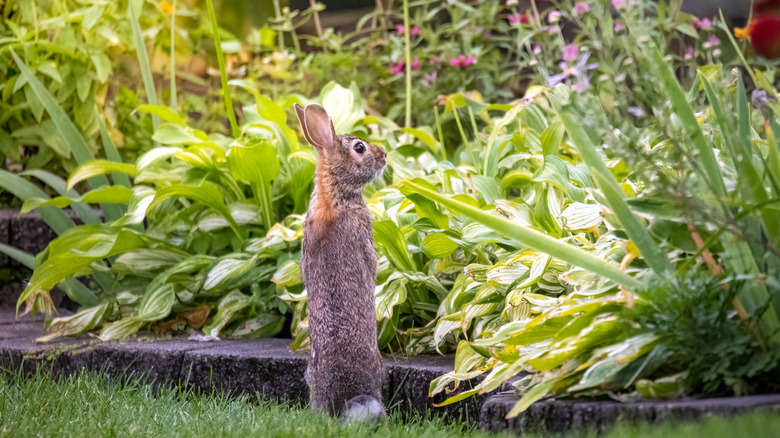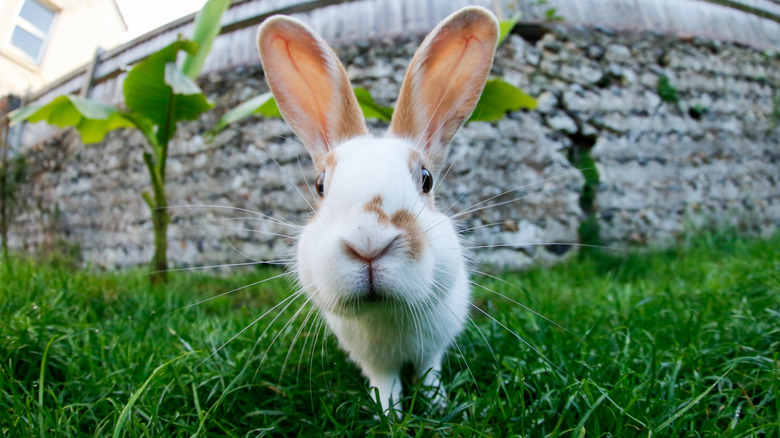Keep Your Garden Safe From Rabbits With A Budget-Friendly PVC Fence
Rabbits are adorable, innocent creatures who can do no wrong — unless you're a gardener. After losing enough flowers, veggies, bulbs, and other plants to rabbits (not to mention the small holes all over your lawn), they can start to feel like a downright menace. If you're ready to make your garden officially rabbit-free, try building a PVC fence to keep them out on a budget.
There are many ways to keep rabbits away from your garden, including repellents, traps, or choosing to avoid planting their favorite vegetables. But the most reliable method is to block them out with a fence. Chicken wire is one common option, but TikToker and homesteader @pawpawridgehomestead recommended a more attractive alternative: a small fence made out of PVC and wire or plastic mesh. The method involves sticking conduits, or metal tubes, down in the soil, then sliding the PVC pipes over it, so you can easily slide the panels off to access your garden. House Digest spoke exclusively with Garden Editor and in-house Master Gardener, Tiffany Selvey, to determine how useful this hack is.
A solid choice for rabbit proofing
Overall, this PVC fence is a worthwhile alternative to other rabbit-proof fences. According to Selvey, it's tall enough and has a small enough gap on the bottom to keep rabbits out effectively. "I've used simple barriers like temporary fence posts with chicken wire to keep rabbits out of my garden, but this is much more attractive and sturdy," she told House Digest exclusively.
Selvey added that the design seems simple and low-cost, so it should be accessible to most people. It also has the advantage of being removable. "This design is easy to use when you need to access the soil, unlike more permanent styles, and all the materials are inexpensive and easy to find at any hardware store," she said. This fence can work on raised beds as well as in-ground beds. "As long as there's not a big gap between the bottom of the fence and the ground, it should keep rabbits out of any kind of garden," Selvey shared.
What it won't work for
The only limitation of this PVC fence, according to Selvey, is that it's specifically useful for rabbits (and perhaps other rabbit-sized creatures). "If you have larger pests like deer, groundhogs, or even pets, this fence may not be a deterrent," Selvey told House Digest exclusively. "Likewise, tiny critters like chipmunks and mice could still get in." But if rabbits are your main garden nemesis, it's worth a shot.
For groundhogs, you'll need a slightly taller fence, at least 3-feet-high. The bottom also needs to be buried into the soil 10 to 12 inches deep. An electric fence is an option as well, and it has the added bonus of being effective against raccoons, chipmunks, and squirrels — all of whom can climb most regular fences. When it comes to deer, electric fences don't work quite as well; your best bet is an extra tall, sturdy fence — 7 to 8 feet to be safe.

